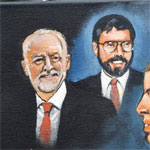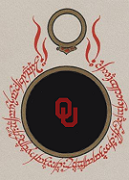|
Just some stuff I came across:  From the below wiki, but I didn't find an explanation for what those Blocks actually meant https://en.wikipedia.org/wiki/World-systems_theory And from the same article: 'A world map of countries by trading status in late 20th century using the world system differentiation into core countries (blue), semi-periphery countries (yellow) and periphery countries (red), based on the list in Dunn, Kawano, Brewer (2000)'
|
|
|
|

|
| # ? Jun 8, 2024 00:26 |
|
Count Roland posted:Just some stuff I came across:
|
|
|
|
Byzantine posted:No, I am not defending Stalin. Are you defending the Polish conquest of Kyiv? Poland invading from the west is what caused the independent Ukrainian State to collapse and be split between Poland and Russia. No, I was defending the right of Polish (and Lithuanian, and Latvian, and Estonian for that matter) people not to be annexed and ethnically cleansed by Stalin in 1939 and 1945. Which you tried to justify for some reason because Nazis.
|
|
|
|
FreudianSlippers posted:It's Guy Maddin, buddy. I met Guy Maddin earlier this year, and now I know that he's just a John Waters raised entirely on A Prairie Home Companion.
|
|
|
|
Count Roland posted:Just some stuff I came across: im warsaw pact ireland
|
|
|
|
Other*
|
|
|
|
Under the old definition, Ireland was a third-world country. Under the new definition, Britain is a third-world country instead. 
|
|
|
|
Blut posted:No, I was defending the right of Polish (and Lithuanian, and Latvian, and Estonian for that matter) people not to be annexed and ethnically cleansed by Stalin in 1939 and 1945. Which you tried to justify for some reason because Nazis. No, I didn't. Like, I don't know what I posted that came off that way. The only thing I posted about the Nazis was how incredibly stupid it was to cut a deal with them.
|
|
|
|
Soviet Commubot posted:Fixed a bit for you. Celtic is a language group and Irish is just one of them. There are two subgroups, the Goidelic languages, Irish, Scots Gaelic and Manx and the Brittonic languages, Welsh, Cornish and Breton. At least the ones that aren't entirely dead and I'm being extremely generous to Cornish and Manx with that. Good point about Irish, I wanted to highlight that I didn't mean Irish accent English, but yeah, Irish is its own language. My point is that it doesn't matter how related languages are when it comes to exterminating them. From an imperialist perspective, either it's mutually intelligible with your language or it's not, and if it's not, those barbarians need to learn the imperial language. Which they will probably, unless they can pull an Asterix and remain self sufficient and independent. I don't actually know about Tamil speakers, but I imagine a lot of them have Hindi and/or English as a second language. I know that the upper class in Morocco speak French, which is obviously completely unrelated to Moroccan. Also there are also the various sign languages that are indigenous to Europe, plus all the ones that have been exterminated since the Romans (and before). I think rural Russia still has a few minority Finnic languages too.
|
|
|
|
BonHair posted:My point is that it doesn't matter how related languages are when it comes to exterminating them. From an imperialist perspective, either it's mutually intelligible with your language or it's not, and if it's not, those barbarians need to learn the imperial language. That's really not necessarily true. The Ottoman Empire controlled most of the Arab world for hundreds of years – some of it quite tenuously and in name only like Tunisia, but other parts quite closely. Only a handful of administrators ever learned Turkish, in addition to the tiny minority of Turkoman expatriates thinly spread throughout administrative centers. Arabic was the language for 99% of communication in modern-day Iraq and Syria in 1850. So it was basically the other way around -- a handful of high-level administrators and tax collectors, who would be from Istanbul in the first place and sent as colonial administrators, would need to learn Arabic (or whatever local language). Very few people spoke Turkish once you got east / southeast of Anatolia. Even with most local administrators you would speak in Arabic, even if you also spoke Turkish. Dunno what older European or East Asian empires were like, but the Ottoman Empire was absolutely not pushing its own language on people. E: I think the big difference is whether you consider imperialism "I want to make your land part of my country for reals" sense like Russia in Siberia or the UK in New Zealand/Australia, or imperialism in the "I want an overseas playground-murderpit-resource extraction" sense like the US in Cuba, Belgium in Congo, or the UK in India. Saladman fucked around with this message at 09:26 on Jul 20, 2023 |
|
|
|
One of the canonical differences between an empire and a nation-state is the degree to which the language of the ruling elite is imposed as the language of the masses. In the pre-state period it was much more common for the conquering peoples to eventually accommodate to the ways of life and language of the conquered peoples. This happened with Turkic conquerors in northern China in the Five Dynasties and Ten Kingdoms period, and the Normans conquest in England, and the Mughals in India. Generally speaking forcible conversion of language minorities is a process of state-building, rather than empire-building (just ask the Occitan speakers in southern France).
|
|
|
|
|
Kenning posted:One of the canonical differences between an empire and a nation-state is the degree to which the language of the ruling elite is imposed as the language of the masses. In the pre-state period it was much more common for the conquering peoples to eventually accommodate to the ways of life and language of the conquered peoples. This happened with Turkic conquerors in northern China in the Five Dynasties and Ten Kingdoms period, and the Normans conquest in England, and the Mughals in India. Generally speaking forcible conversion of language minorities is a process of state-building, rather than empire-building (just ask the Occitan speakers in southern France). i feel like we were taught extremely different definitions of 'state' and 'empire' because this reads like gibberish
|
|
|
|
language was a mistage
|
|
|
|
Jezza of OZPOS posted:i feel like we were taught extremely different definitions of 'state' and 'empire' because this reads like gibberish Saladman posted:That's really not necessarily true. The Ottoman Empire controlled most of the Arab world for hundreds of years – some of it quite tenuously and in name only like Tunisia, but other parts quite closely. Only a handful of administrators ever learned Turkish, in addition to the tiny minority of Turkoman expatriates thinly spread throughout administrative centers. Arabic was the language for 99% of communication in modern-day Iraq and Syria in 1850. Not that this means every non-Turkish or Arabic language was suppressed, just that Arabic had about as strong a reason to remain untouched by a foreign empire as you can really come up with.
|
|
|
|
A Buttery Pastry posted:It reads like they're using state as a synonym for nation-state. yeah that tracks I skipped over that and read "prestate era" and got extremely confused. I still think its a completely arbitrary distinction even by the standards of history as a discipline
|
|
|
|
Saladman posted:That's really not necessarily true. The Ottoman Empire controlled most of the Arab world for hundreds of years – some of it quite tenuously and in name only like Tunisia, but other parts quite closely. Only a handful of administrators ever learned Turkish, in addition to the tiny minority of Turkoman expatriates thinly spread throughout administrative centers. Arabic was the language for 99% of communication in modern-day Iraq and Syria in 1850. Isn't the Ottoman situation a bit more akin to something like the Mughals or the Qing? The outside ruling group grafts itself onto a pre-existing empire and the court language changes but the language of day to day business remains the same. I suppose Turkish is different in that they displaced two empires (the greek byzantine and the arab caliphate) and the way Turkish as a language interacted with both was different.
|
|
|
|
Guavanaut posted:language was a mistage Says the one using one. Checkmate
|
|
|
|
Kenning posted:One of the canonical differences between an empire and a nation-state is the degree to which the language of the ruling elite is imposed as the language of the masses. [Citation Needed]
|
|
|
|
acccthually the difference is if you go around genociding on foot/horse or on boat
|
|
|
|
a pipe smoking dog posted:Isn't the Ottoman situation a bit more akin to something like the Mughals or the Qing? The outside ruling group grafts itself onto a pre-existing empire and the court language changes but the language of day to day business remains the same. I don't know anything about the Mughals at all, but it's quite different from the Normans or the Qing. It would be similar to the Normans if the British were speaking French today, or if everyone spoke Manchu in China by 1920. Within Anatolia, the language of day to day business (and taxation!) was very much Turkish throughout the empire, even though Greeks would speak Greek, Armenians Armenian, and so forth. I'm sure they had Greek or Greek-speaking tax collectors in Greek-majority areas, but it'd probably be like getting around the USA with Spanish today. In that, yeah you can do it but also it'd be pretty isolating unless you never left Miami. So if you were in Izmir (majority Greek just before the 1923 ethnic cleansing) you could get around with Greek just fine, but anyone there who was a professional merchant that ever dealt with overland trade would also speak Turkish. Vice-versa, even very well educated Turks would generally not speak Greek or Armenian, so a traveller through any part of Anatolia except the Greek-majority coastal areas would 100% need to learn Turkish or take an interpreter. This is by 1800 - I've read really a lot of travelogs from that period - so no idea if in like, 1600, if the language of commerce was still largely Greek.
|
|
|
|
Guavanaut posted:language was a mistage why are there two babylons
|
|
|
|
One of the classic definitions of imperialism is about the ability of the state to rule over many peoples instead of just one, although that's kind of a vague thing.Kenning posted:One of the canonical differences between an empire and a nation-state is the degree to which the language of the ruling elite is imposed as the language of the masses. In the pre-state period it was much more common for the conquering peoples to eventually accommodate to the ways of life and language of the conquered peoples. This happened with Turkic conquerors in northern China in the Five Dynasties and Ten Kingdoms period, and the Normans conquest in England, and the Mughals in India. Generally speaking forcible conversion of language minorities is a process of state-building, rather than empire-building (just ask the Occitan speakers in southern France). Are you saying that the Mughals aren't an empire? Or that the Normans are? Are the Anglo-Saxons an empire? The empire of Rome ended up supplanting a lot of the local languages of Europe so that to this day they speak derivations of latin, even if they didn't eliminate Greek. The nebulous idea of a nation-state seems to come more from just buying into myths about some particularly old and relatively stable states rather than their actual reality anyways. Tree Goat posted:why are there two babylons It was such a tall tower, that's where the top landed when it fell.
|
|
|
|
Another reason I don’t see India being fully hindified is that languages like telugu, tamil, and kannada have millions and millions of speakers with a large written and cultural history. Plus a rivalry with the north such that they prefer english as lingua franca. There’s no pressure on parents to teach kids the court language for their own good. In contrast parisian court french had an overstated role within and without France that not even occitan could come close to matching, let alone something like gallo. It’s not impossible but I don’t see it happening before we’re all underwater.
|
|
|
|
Re: Arabic retaining it's lingua franca status during the Ottoman period, how much would Arabic being the prestige language of Islam have played into not trying to supplant it with Turkish? Besides the logistical issues of changing the language of 10s of millions of people, naturally.Tree Goat posted:why are there two babylons I mean, we know there's at least five, right?
|
|
|
|
Tree Goat posted:why are there two babylons I think that might actually be "Babylos" so it might just be the author's weird rear end was of spelling of Byblos, made doubly weird by it being a bible map so you'd expect it to be labelled "Gebal".
|
|
|
|
BonHair posted:My point is that it doesn't matter how related languages are when it comes to exterminating them. From an imperialist perspective, either it's mutually intelligible with your language or it's not, and if it's not, those barbarians need to learn the imperial language. That's not always the case. Before the French Revolution only about 1/2 of the French population even spoke French. The Revolution is really when they started their linguicidal policies and it took them until the 20th century to really hammer down. I speak Breton so I'm very familiar with the history. Also I agreed that it doesn't really matter how related the languages are, right here quote:The only languages in Europe that aren't are Basque (isolate) Finnish, Estonian, Hungarian and Samí (Uralic) and Maltese (Semitic) quote:That said, Scandinavia sure has done a great job trying to suppress Samí and both the French and Spanish have done their damndest to kill Basque as well BonHair posted:Which they will probably, unless they can pull an Asterix and remain self sufficient and independent. I don't actually know about Tamil speakers, but I imagine a lot of them have Hindi and/or English as a second language. I know that the upper class in Morocco speak French, which is obviously completely unrelated to Moroccan. About 18% of the Welsh speak Welsh and that number is growing, despite being literally right next to England. The process of linguicide can be fought back against, especially in the modern era where just slaughtering or beating them isn't quite as acceptable as it was, at least in the West. Unless they're protesting of course, I sucked in my share of CS gas at pro-Breton language and pro-Occitan language protests and the cops there had no real compunction about using their clubs. Russia has a large number of minority languages. There are 26 that are official at the subnational level, only two are Indo-European and several of them have a significant number of speakers. This is in spite of the best efforts of the various forms of the Russian Empire. Don't get me wrong, they did a tremendous amount of damage and a lot of them will die at some point as Russia's policies have become even more ethno-nationalist recently. They did dig up an old tried and true strategy in 2022 by sending disproportional numbers of minority ethnicities from the Far East to Ukraine like the Buryats.
|
|
|
|
Reveilled posted:I think that might actually be "Babylos" so it might just be the author's weird rear end was of spelling of Byblos, made doubly weird by it being a bible map so you'd expect it to be labelled "Gebal". still looks like an "n" when i zoom in but i bet you're right and it's meant to be byblos
|
|
|
|
Tree Goat posted:still looks like an "n" when i zoom in but i bet you're right and it's meant to be byblos I agree it looks like an n, but if you compare the two side by side you can see the kerning between the o and the last character is different on the two names even though the rest of the letters are identical, so I think that implies the last letter of the word used for Byblos can't be an n. 
|
|
|
|
Reveilled posted:I agree it looks like an n, but if you compare the two side by side you can see the kerning between the o and the last character is different on the two names even though the rest of the letters are identical, so I think that implies the last letter of the word used for Byblos can't be an n. baffling. get it together, weird bible map person! Judgy Fucker posted:I mean, we know there's at least five, right? oh true, and through that whole time travel thing there's a precedent for multiple simultaneous babylons
|
|
|
|
Judgy Fucker posted:Re: Arabic retaining it's lingua franca status during the Ottoman period, how much would Arabic being the prestige language of Islam have played into not trying to supplant it with Turkish? Besides the logistical issues of changing the language of 10s of millions of people, naturally. Probably not hugely? Latin died just fine despite it being a prestige language, and while lay-Muslims have always been supposed to learn the Koran (unlike learning the Bible in Latin, which was ecclesiastical only), in reality you just memorize a handful of prayers, except for a tiny minority of boys who would have gone to Koranic school. Until the past like 50-120 years, education was so rare/expensive that 99% of boys and 99.9% of girls couldn't afford to care about "prestige" or not. On that note, the Maghreb did eventually switch to Arabic after colonization, but while it may have been gradually happening after the initial conquest, it was vastly accelerated after the invasion by the Banu Hilal in the 11th century, who numerically and politically overwhelmed the Berbers and the small remaining Christian community. ±1 million Banu Hilal came within 100 years, against a total population of ±5 million Maghrebis, and coastal regions would have been even more overwhelmed. The Banu Hilal were sent there to invade and colonize specifically to punish the rebellious Maghrebis and correct their errant and heretical interpretation of Islam, so I suspect they came with a good mix of both cultural genocide and old fashioned genocide. For Egypt there probably are fairly detailed records about the linguistic shift from Coptic to Greek to Arabic, but I don't really know so much about Egyptian history. Also what is or is not a prestige language can be highly political. For instance the Kabyle Berbers of Algeria very strongly dislike Arabic and vastly prefer speaking French with people who don't speak Kabyle. This is probably a longstanding sentiment given that they've been successively colonized by numerous groups over 2200 years and yet still speak Berber, despite living in a highly connected coastal region. IANA Linguist though.
|
|
|
|
Groda posted:I met Guy Maddin earlier this year, and now I know that he's just a John Waters raised entirely on A Prairie Home Companion. This is extremely spot on.
|
|
|
|
Saladman posted:Probably not hugely? Latin died just fine despite it being a prestige language, and while lay-Muslims have always been supposed to learn the Koran (unlike learning the Bible in Latin, which was ecclesiastical only), in reality you just memorize a handful of prayers, except for a tiny minority of boys who would have gone to Koranic school. Until the past like 50-120 years, education was so rare/expensive that 99% of boys and 99.9% of girls couldn't afford to care about "prestige" or not. Did latin really die, though? No one but a rare few speak classical or church latin, as in, can hold a conversation. But it never went away, it just changed over two thousand years. That's way different than say, scottish gaelic where people tried to bring it back from the brink of extinction, or diné bizaad, which is preserved as-is for 200 years as a defiance to genocide, or biblical hebrew, which no one speaks outside of schul. I see this as a fundamental difference. When I speak french, I'm still speaking gallic latin, sort of.
|
|
|
|
I'd actually question how much all the romantic languages should count as just a continuation of Latin anyways, even if they're all separate from eachother. I don't think most languages stay much the same over more than a millennium anyways.
|
|
|
|
yeah i wonder how different latin -> romanian is compared to Old Arabic and today's varieties
|
|
|
|
 From: https://en.wikipedia.org/wiki/Varieties_of_Arabic (not meant to be an answer to ^^, just fodder to help thread to discuss the question)
|
|
|
|
a pipe smoking dog posted:I suppose Turkish is different in that they displaced two empires (the greek byzantine and the arab caliphate) and the way Turkish as a language interacted with both was different. This was discussed in other posts as well, but I just wanted to note that the "Arab Caliphate" as it were, as an empire, was long dead for centuries already by the time the Ottoman Empire emerged. Furthermore with discussion of Turkish vs Greek it seems that many often have a tendency to jump straight to the Ottoman Empire and overlook the history of the 11th through 14th century of Turkish settlement, state formation and assimilation (of the locals) in Anatolia. IIRC by many accounts, the majority of Anatolia, especially the plateau, was had already been thoroughly assimilated into a Turkish-speaking, Sunni Muslim (though profoundly influenced by sufi traditions) civilization/culture by the 13th century* or so (outside really of select coastal regions that remained majority Greek-speaking and Christian until modern times). A similar note can be made about the Turkmen/Turkoman ethnic groups in Syria and Iraq, that often seem to be assumed to be a by-product of the Ottoman Empire, but again substantially pre-date that, as regions such as Al-Jazira in modern day Syria had climate and terrain conditions that were very amenable to settlement of Turkish pastoralists and saw large numbers of them do just that starting in the late 10th/early 11th centuries. These tribes continued being an important source of manpower for the Turkish military aristocrats (who were of course substantially married into the local aristocracies, Arab and Kurdish, most notably the Ayyubids) who ruled the region from the mid-11th century. *Not surprisingly coinciding with Western European sources starting to refer to Anatolia as "Turcia" around the same time Randarkman fucked around with this message at 07:52 on Jul 21, 2023 |
|
|
|
Greeks are essentially amphibious, and basically need to be near water. Inland Anatolia was never going to have a strong Hellenic imprint. I am only half joking
|
|
|
|
Grape posted:Greeks are essentially amphibious, and basically need to be near water. Inland Anatolia was never going to have a strong Hellenic imprint. Explain Alexander the Great then
|
|
|
|
BIG FLUFFY DOG posted:Explain Alexander the Great then He was Macedonian
|
|
|
|

|
| # ? Jun 8, 2024 00:26 |
|
BIG FLUFFY DOG posted:Explain Alexander the Great then He reached the shore and wept because there were no more worlds to conquer, because he couldn't go any further inland.
|
|
|












































